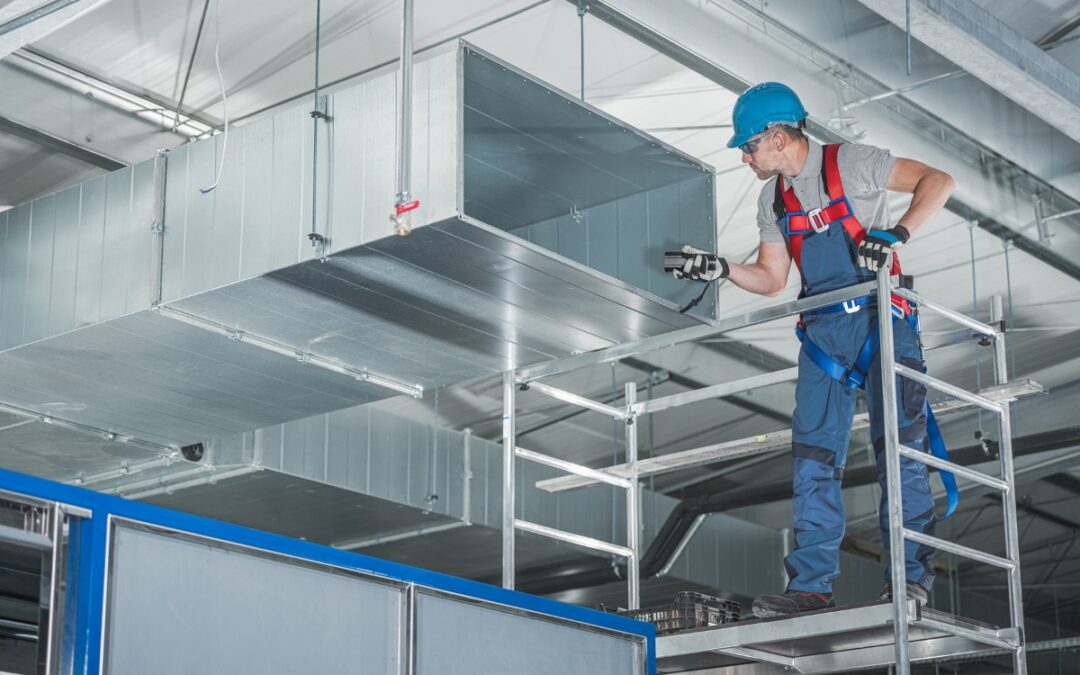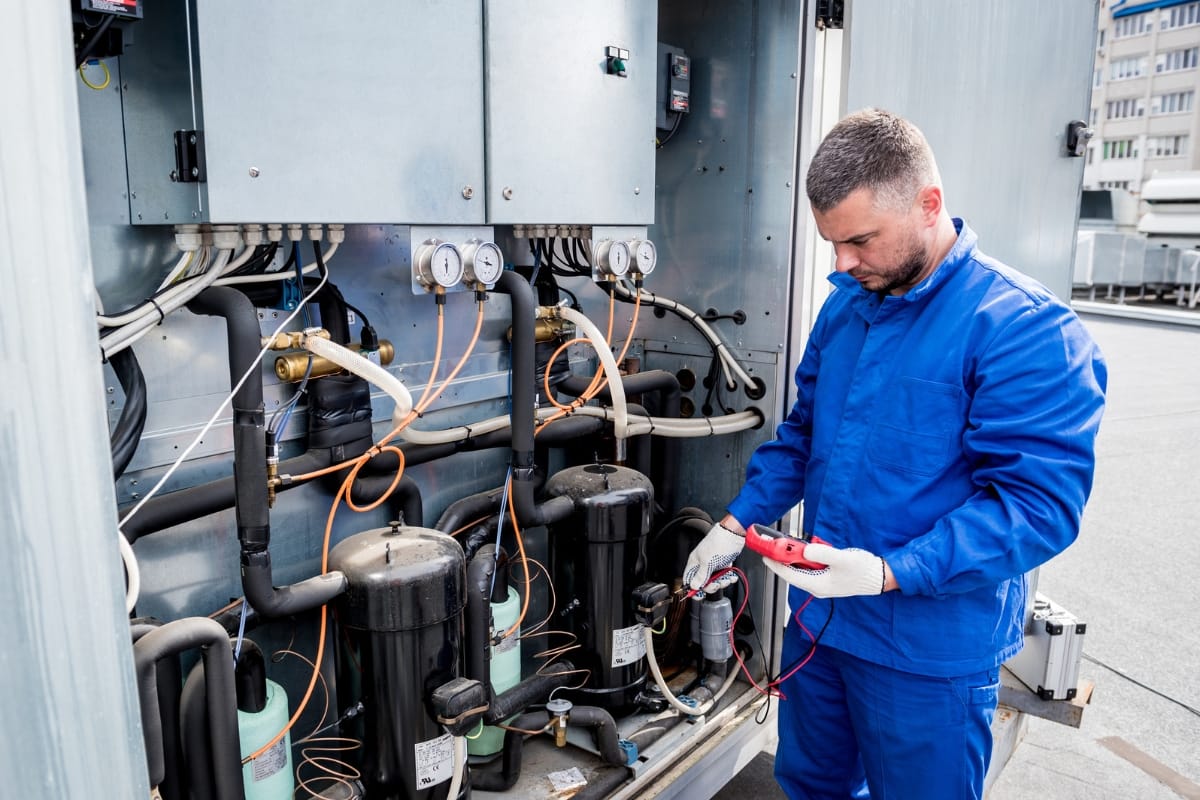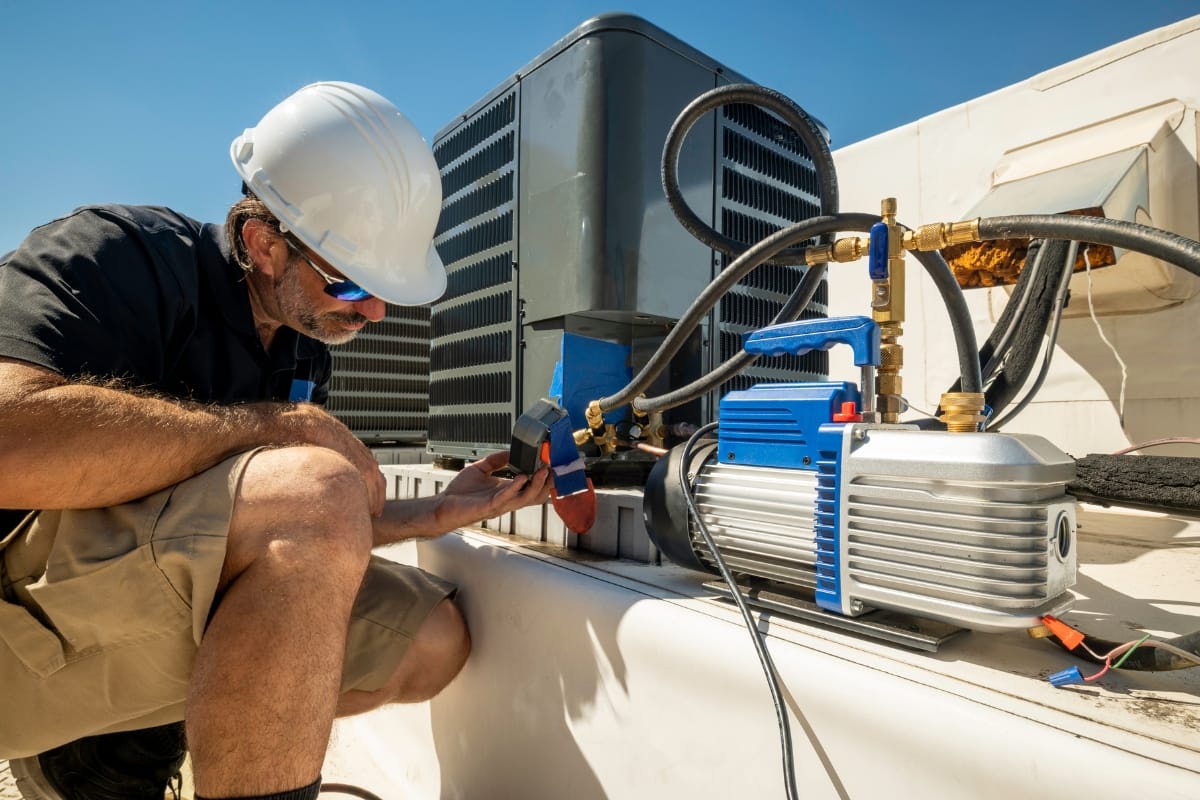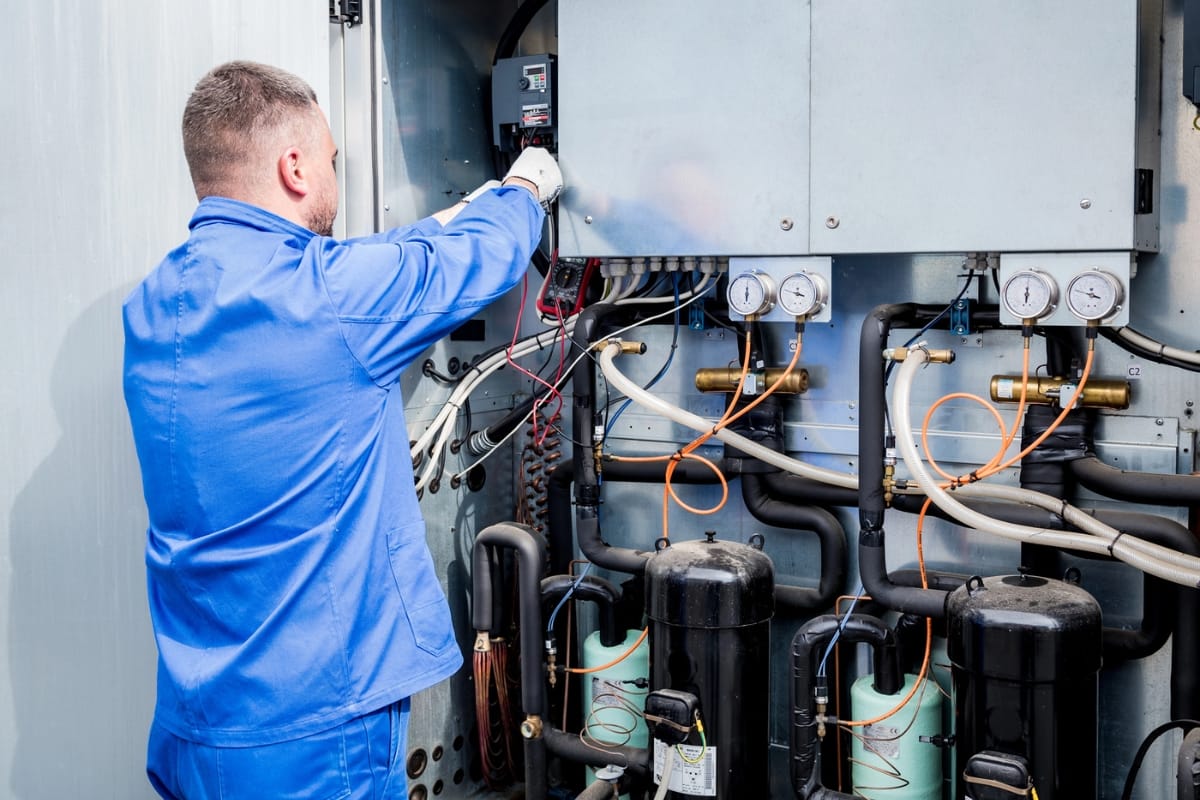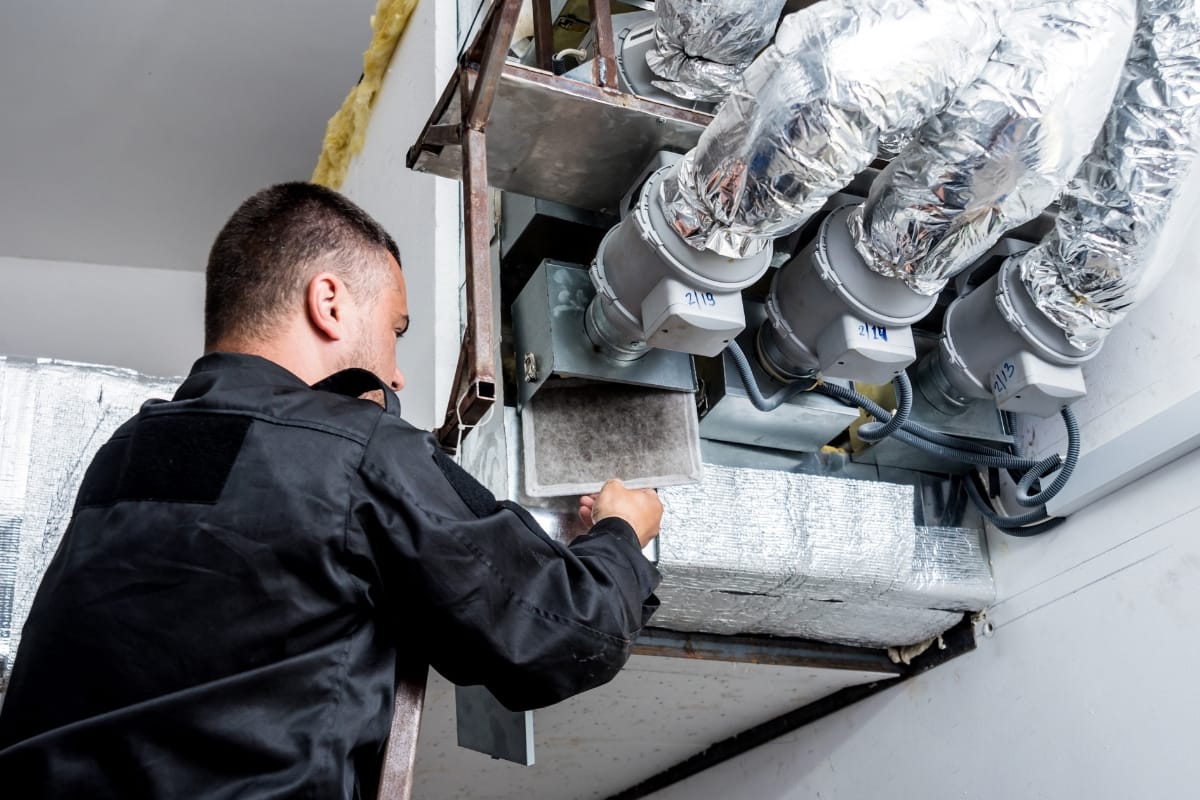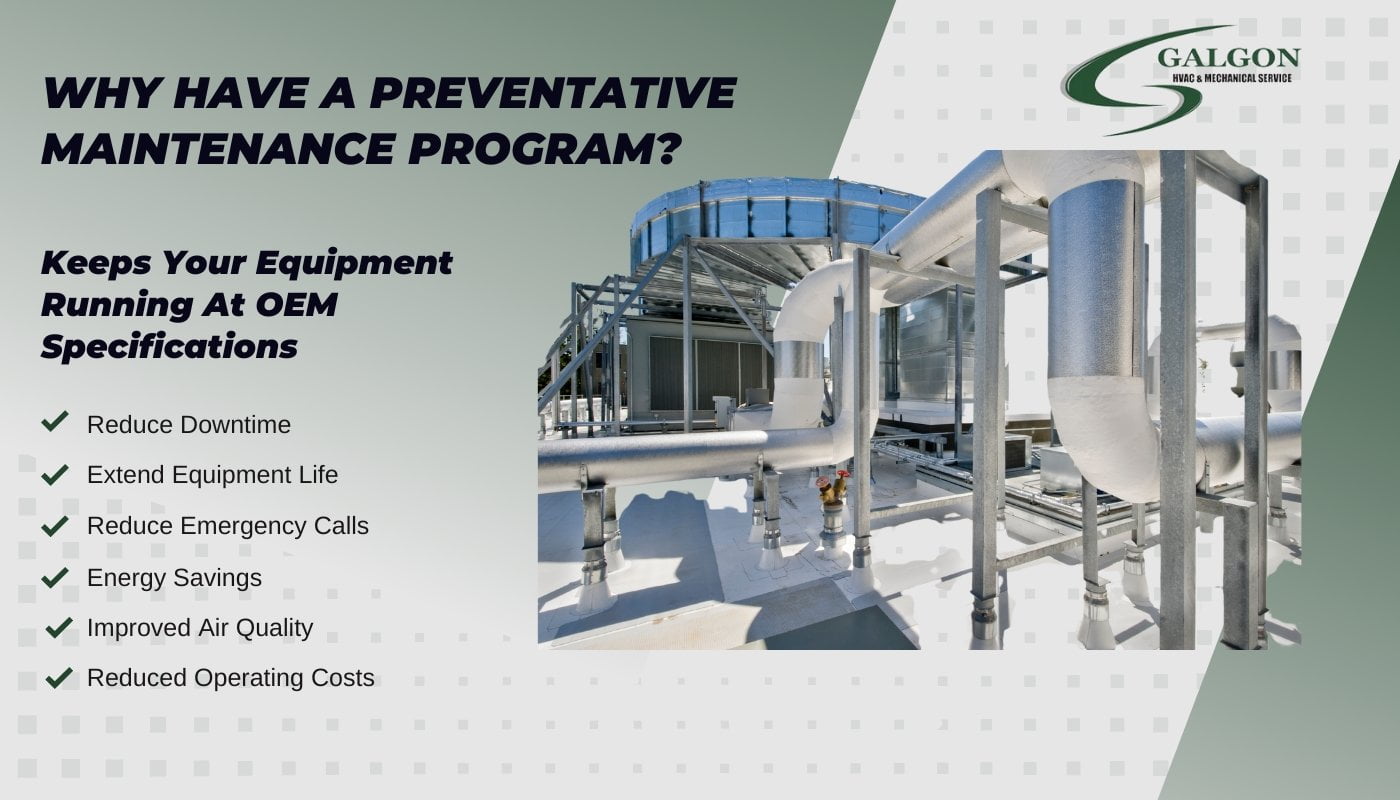In today’s competitive business landscape, the efficiency and sustainability of commercial buildings are more important than ever.
Building automation HVAC systems are at the forefront of this evolution, seamlessly integrating climate control with state-of-the-art software to monitor and adjust conditions in real time. This means that energy usage is optimized, operational costs are reduced, and occupants benefit from a consistently comfortable environment.
As we dive deeper into the transformative impact of these systems, you’ll discover why more businesses are investing in this cutting-edge technology and how it is setting new standards in commercial space management.
Unlocking the Potential: How Does Building Automation HVAC Enhance Efficiency?
The Evolution of Building Automation HVAC Systems
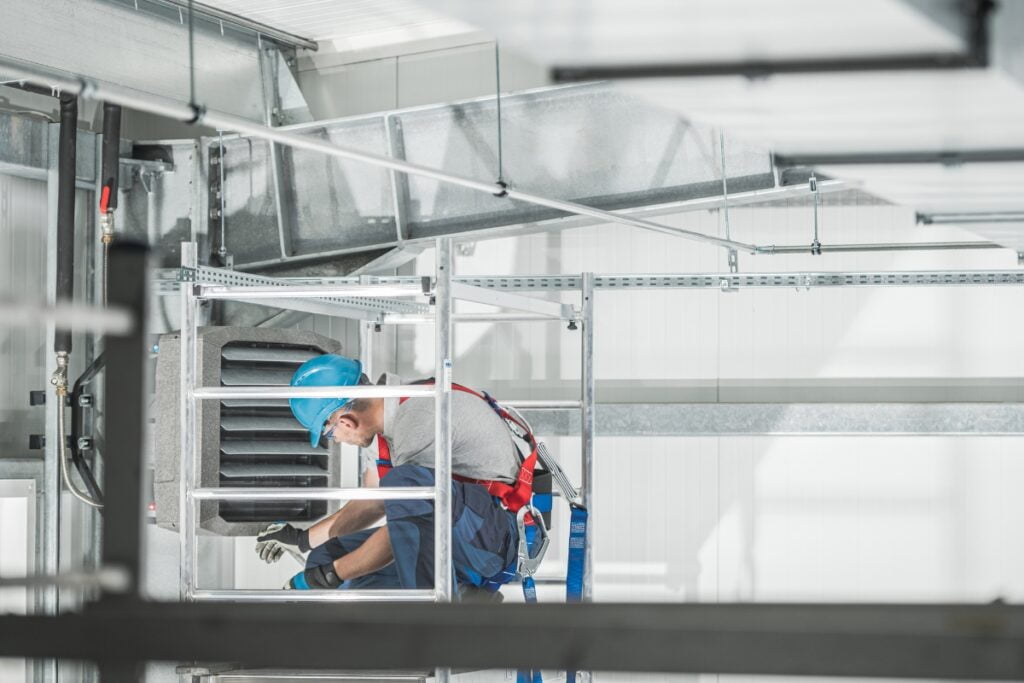
Building automation HVAC systems have come a long way since their inception. In the early days, these systems were basic and limited in their capabilities. They were primarily used to control temperature and humidity levels in commercial spaces. However, as technology advanced, so did building hvac control automation.
Today, these systems are equipped with advanced sensors and smart hvac controls that allow for precise monitoring and adjustment of various parameters. They can not only regulate temperature but also control ventilation, air quality, and even lighting. This evolution has made building automation HVAC systems an integral part of modern commercial space management.
One of the key advancements in building automation HVAC systems is the integration of artificial intelligence (AI) algorithms. These algorithms analyze data from various sensors to make intelligent decisions about optimizing energy usage. For example, if a room is unoccupied for an extended period, the system can automatically adjust the temperature to save energy without compromising occupant comfort.
Another significant development is the integration of cloud-based platforms with building automation HVAC systems. This allows for real-time monitoring and remote access capabilities. Facility managers can now monitor and control their HVAC systems from anywhere using a smartphone or computer. This level of flexibility and convenience enhances operational efficiency and reduces maintenance costs.
Benefits of Implementing Building Automation HVAC Systems
The implementation of building automation HVAC systems offers numerous benefits for commercial spaces. Let’s explore some of the key advantages:
1. Optimizing Energy Efficiency with Smart Controls
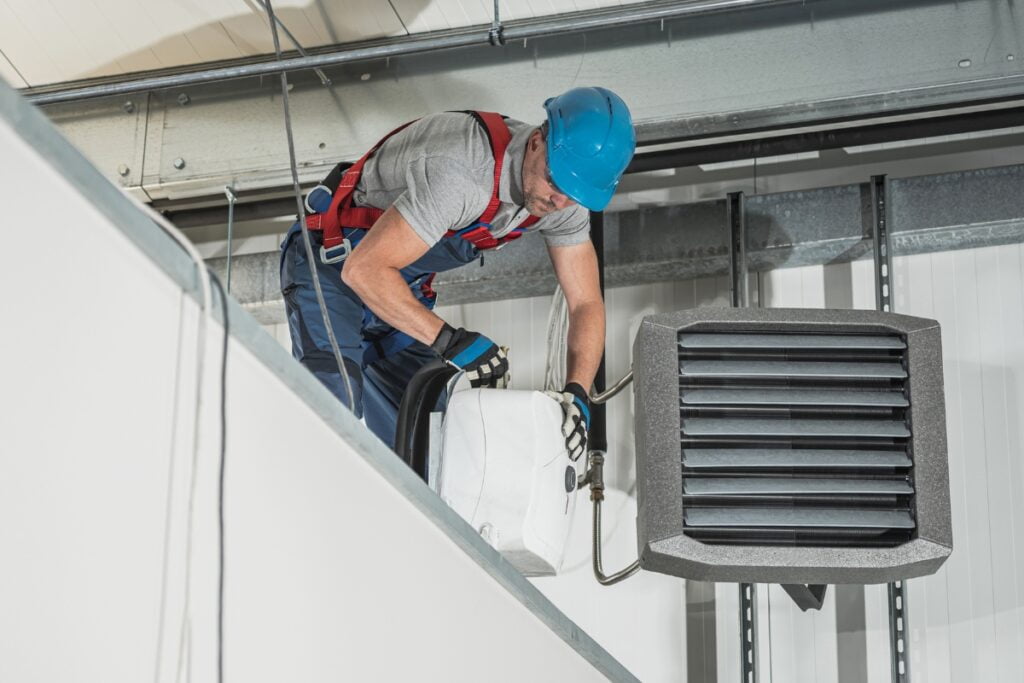
Smart controls play a vital role in optimizing energy efficiency in commercial spaces equipped with building automation HVAC systems. These advanced hvac technologies revolutionize the way buildings are managed and operated, leading to significant energy savings and improved overall performance.
By integrating smart controls into building automation HVAC systems, facilities can monitor and adjust energy usage based on real-time data and occupancy patterns. This targeted approach ensures that heating, ventilation, and air conditioning systems operate at peak efficiency, reducing energy waste and lowering operational costs.
Building automation HVAC systems with smart controls also support sustainability goals by promoting environmentally friendly practices and reducing carbon footprints. Through continuous optimization and fine-tuning of energy usage, buildings can minimize their impact on the environment while enhancing operational efficiency.
2. Enhancing Occupant Comfort and Productivity
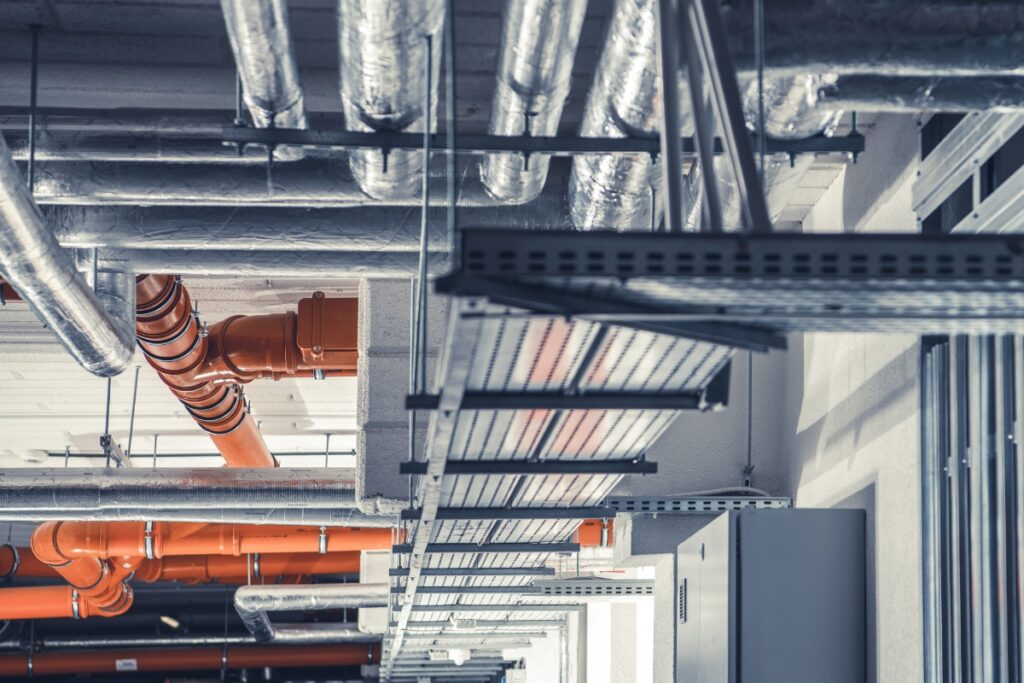
When it comes to revolutionizing commercial spaces, integrating building automation HVAC systems plays a crucial role in enhancing occupant comfort and productivity. These advanced systems not only regulate temperature but also optimize energy efficiency, air quality, and overall building performance.
By incorporating building automation HVAC systems in commercial spaces, businesses can create a more comfortable environment for their occupants.
These systems allow for precise temperature control, ensuring that employees can work in an environment that is neither too hot nor too cold. This optimal temperature regulation leads to increased comfort levels, thereby boosting productivity among workers.
Moreover, building automation HVAC systems contribute to improved air quality within commercial spaces. By continuously monitoring and adjusting ventilation levels, these systems help reduce indoor pollutants and maintain a healthy indoor environment. This cleaner air quality can lead to fewer sick days among employees and a more productive workforce.
3. Real-Time Monitoring and Remote Access Capabilities
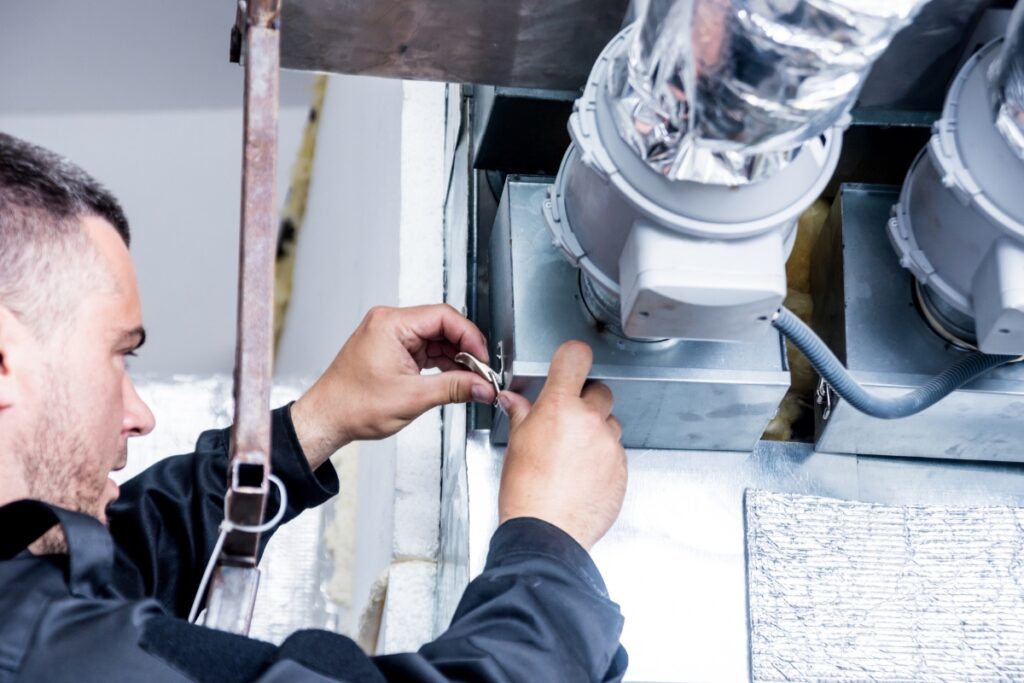
Gone are the days when facility managers had to physically inspect HVAC systems or rely on manual reports for monitoring. Building automation HVAC systems provide real-time data on system performance, energy consumption, and maintenance requirements.
With the integration of advanced technology, building automation HVAC systems equipped with real-time monitoring capabilities allow facility managers to oversee and control heating, ventilation, and air conditioning systems from a centralized platform. This ensures optimal performance, energy efficiency, and comfort levels within the commercial space.
Remote access capabilities further enhance the efficiency of building automation HVAC systems by enabling facility managers to monitor and adjust settings even when they are not physically present on-site. This flexibility not only saves time but also allows for quick response to any issues or changes in the environment, ensuring uninterrupted operation and occupant comfort.
By leveraging real-time monitoring and remote access capabilities, building automation HVAC systems can proactively identify potential problems, optimize energy usage, and reduce maintenance costs. Facility managers can receive instant alerts for system malfunctions, temperature deviations, or equipment failures, enabling swift troubleshooting and resolution to minimize downtime.
4. Cost Savings and Return on Investment
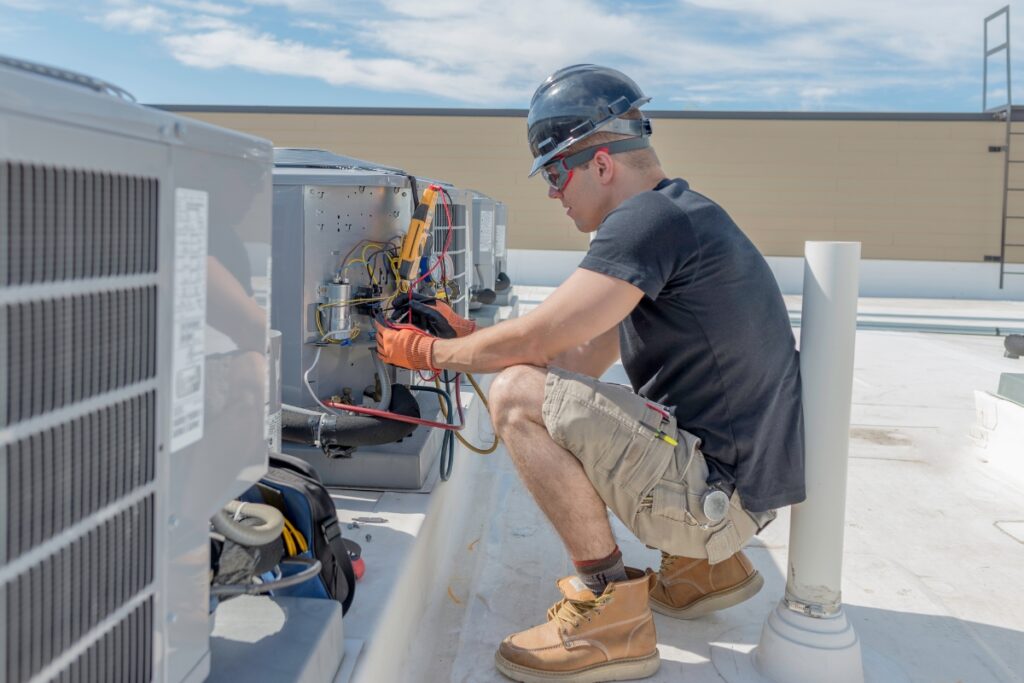
While the initial investment in building automation HVAC systems may seem significant, the long-term cost savings outweigh the upfront costs. By optimizing energy usage, reducing maintenance needs, and extending equipment lifespan through proactive monitoring, these systems offer a high return on investment (ROI).
By automating HVAC systems, buildings can efficiently regulate temperature settings based on occupancy schedules, weather conditions, and other factors. This proactive approach helps in minimizing energy wastage and ensures optimal comfort levels for occupants. As a result, companies can experience substantial cost savings on utility bills while maintaining a comfortable indoor environment.
Furthermore, building automation HVAC systems offer remote monitoring and control capabilities, allowing facility managers to track energy usage in real-time and make necessary adjustments for optimal performance. This proactive maintenance approach not only enhances system reliability but also prolongs equipment lifespan, reducing maintenance costs and enhancing overall operational efficiency.
In addition to operational cost savings, the implementation of building automation HVAC systems can deliver a promising return on investment. The initial investment in upgrading to these advanced systems can be recouped through energy savings, improved system performance, and increased property value.
The long-term benefits of reduced energy consumption and enhanced operational efficiency make building automation HVAC systems a worthwhile investment for commercial property owners.
Integration with IoT Technology for Seamless Operations
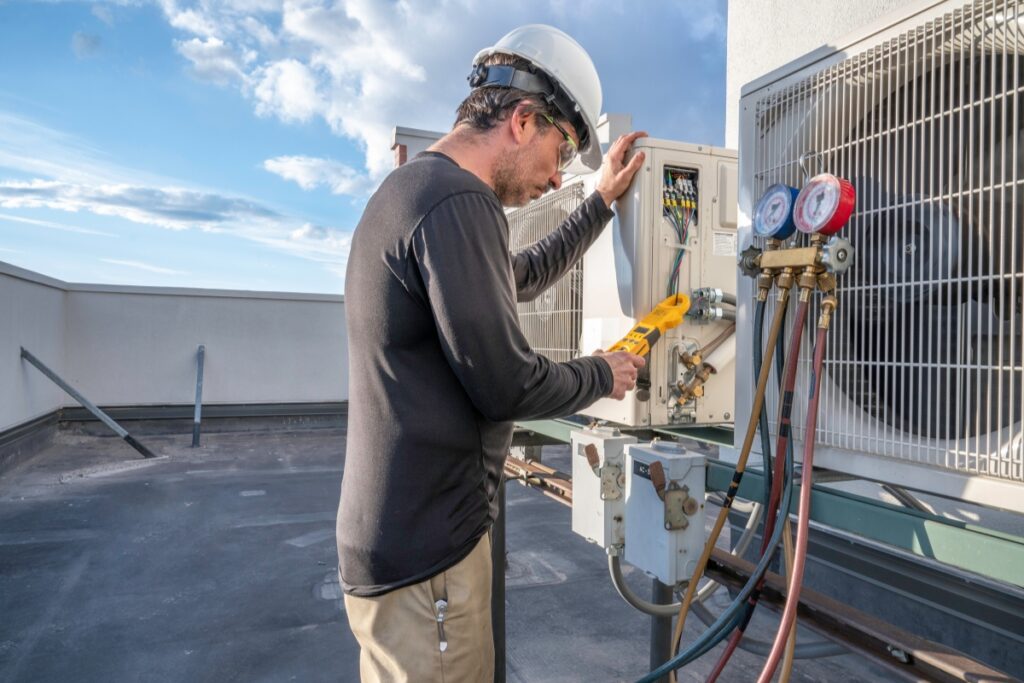
The integration of building automation HVAC systems with Internet of Things (IoT) technology has further enhanced their capabilities. IoT enables seamless communication and data exchange between various devices and systems within a building.
For example, a building automation HVAC system can communicate with smart lighting systems to optimize energy usage based on occupancy. It can also integrate with security systems to ensure that HVAC settings align with building access control.
This level of integration not only improves operational efficiency but also opens up possibilities for advanced analytics and predictive maintenance. Facility managers can leverage the data collected by building automation HVAC systems to identify trends, detect anomalies, and make informed decisions about system optimization.
Sustainability and Environmental Impact
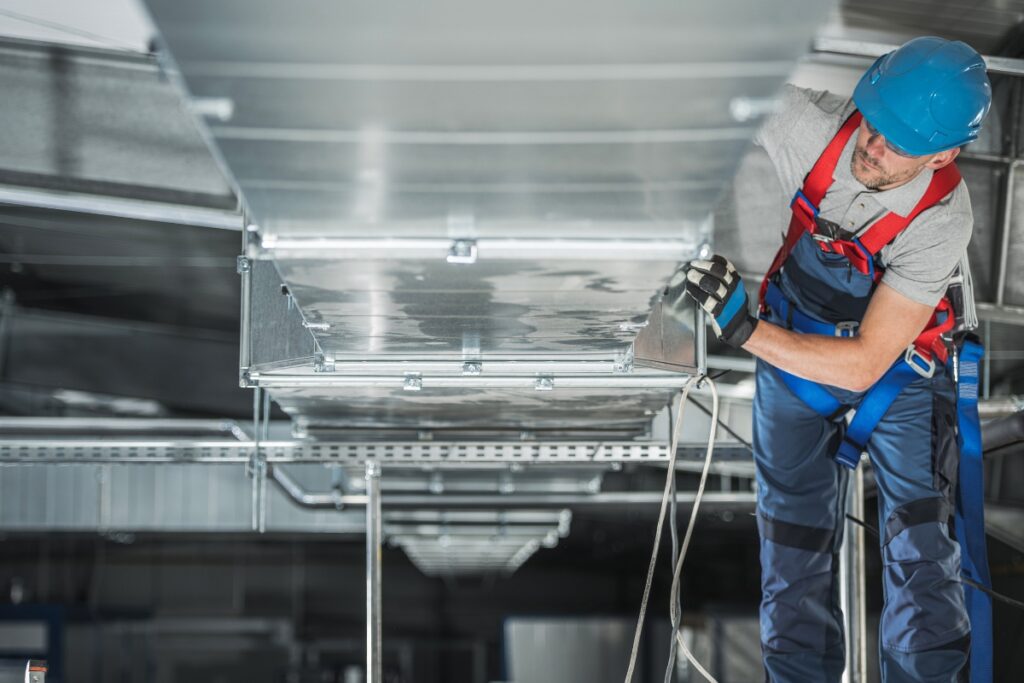
Building automation HVAC systems play a crucial role in promoting sustainability and reducing the environmental impact of commercial spaces. By optimizing energy usage, these systems help reduce greenhouse gas emissions associated with traditional HVAC systems.
In addition, the real-time monitoring capabilities of building automation HVAC systems enable proactive maintenance, minimizing equipment failures and leaks that could lead to water or refrigerant wastage. This contributes to water conservation efforts and reduces the use of harmful refrigerants.
Conclusion: Embracing a Smarter Future for Commercial Spaces
As businesses strive to create smarter and more sustainable environments, investing in building automation HVAC systems is becoming increasingly essential. By embracing these technologies, commercial spaces can achieve greater operational efficiency while reducing their environmental footprint.
Revolutionize your commercial space with advanced building automation HVAC systems from Galgon HVAC & Mechanical Service. Our cutting-edge commercial HVAC solutions are designed to enhance efficiency, comfort, and control within your commercial environment. Contact us today at (404) 352-1500 or visit our website to fill out a request for a service or a quote.

